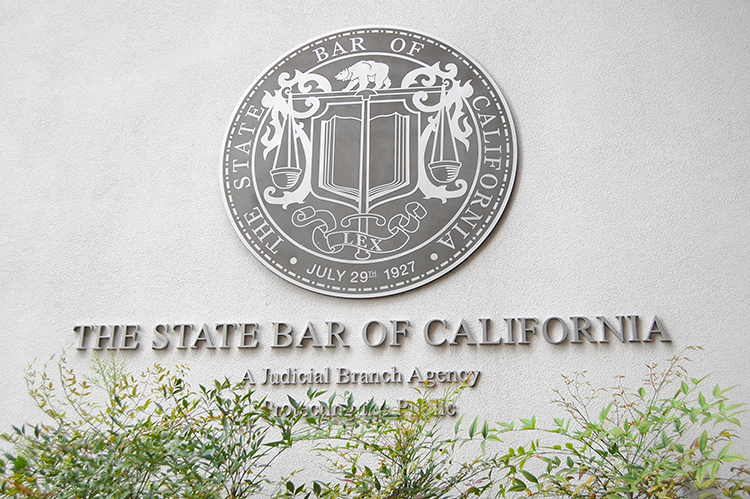California Supreme Court approves state's Kaplan-created bar exam

The State Bar of California’s plan to create a new exam enabling the licensing test to be taken remotely, as well as at in-person test centers, has been green-lighted by the California Supreme Court. (Image from Shutterstock)
Updated: The State Bar of California’s plan to create a new exam enabling the licensing test to be taken remotely, as well as at in-person test centers, has been green-lighted by the California Supreme Court, allowing the first administration of the Kaplan North America-developed test to move forward in February 2025.
The approval allows California, the jurisdiction testing the second-largest number of examinees, to be the first to shun the National Conference of Bar Examiners’ forthcoming NextGen test, set to roll out starting in July 2026.
In a statement, Brandon Stallings, the state bar’s board of trustees chair, called the state supreme court’s Tuesday move “decisive action” that “enables the state bar to provide exam takers with a more affordable and accessible California bar exam beginning in February.”
Additionally, the state supreme court approved the State Bar of California’s plan to boost the February bar exam scores for volunteer examinees who perform well on a beta version of the new test being conducted in early November.
Any scoring adjustment “does not alter the maximum available points for the general bar examination or its passing score,” according to the court order. “No participant shall receive a scoring adjustment simply for participating in the proposed study.”
Examinees who score low on the experimental test will not be penalized on the actual test.
However, taking the experimental test for extra points on the actual bar exam is a one-time offer. The California Supreme Court ruled that only those who participate in the November practice multiple-choice test can boost their scores for either the February or July 2025 administrations. The court denied a proposal without prejudice to its resubmission that would give those who participate in a later, second phase of the experimental test the chance to earn extra points on their actual bar exam scores.
The state supreme court’s moves follow months of consternation surrounding the plan to launch a proprietary exam.
In September, the state’s high court put the brakes on the plan for the Kaplan exam, but it was kicked back to the court for reconsideration.
That same month, 15 deans from ABA-accredited California law schools signed a letter to the high court stating that they have “grave concerns” about Kaplan’s ability to develop a multiple-choice test “in a responsible manner” in time for the February 2025 administration of the newfangled exam.
Also, on Oct. 10, the state supreme court shot down an additional plan to create a portfolio bar exam allowing law school graduates to demonstrate competency via supervised practice, graded work and performance.
Motivation for the flurry of changes stems from the State Bar of California’s admissions fund facing insolvency in 2026. Its 2024 budget forecasts a $3.8 million deficit, while projecting that it will end this year with $3.3 million in reserves, according to a May 16 memo.
Meanwhile, in Nevada, where the Nevada Supreme Court recently approved a three-pronged pathway to the bar that might include using the Kaplan-created test as an interim step, will not be using California’s new test in February, according to Richard M. Trachok II, chair of the State Bar of Nevada’s Board of Bar Examiners.
“We are continuing our due diligence on the [California] multiple-choice exam while proceeding with our negotiations with providers to create the Nevada Foundational Law Exam,” Trachok added.
See also:
California Supreme Court denies plan for new bar exam
Updated Oct. 24 at 4:30 p.m. to clarify who can get extra points and when they can get extra points regarding the experimental test and points on the actual bar exam in California.
Write a letter to the editor, share a story tip or update, or report an error.


